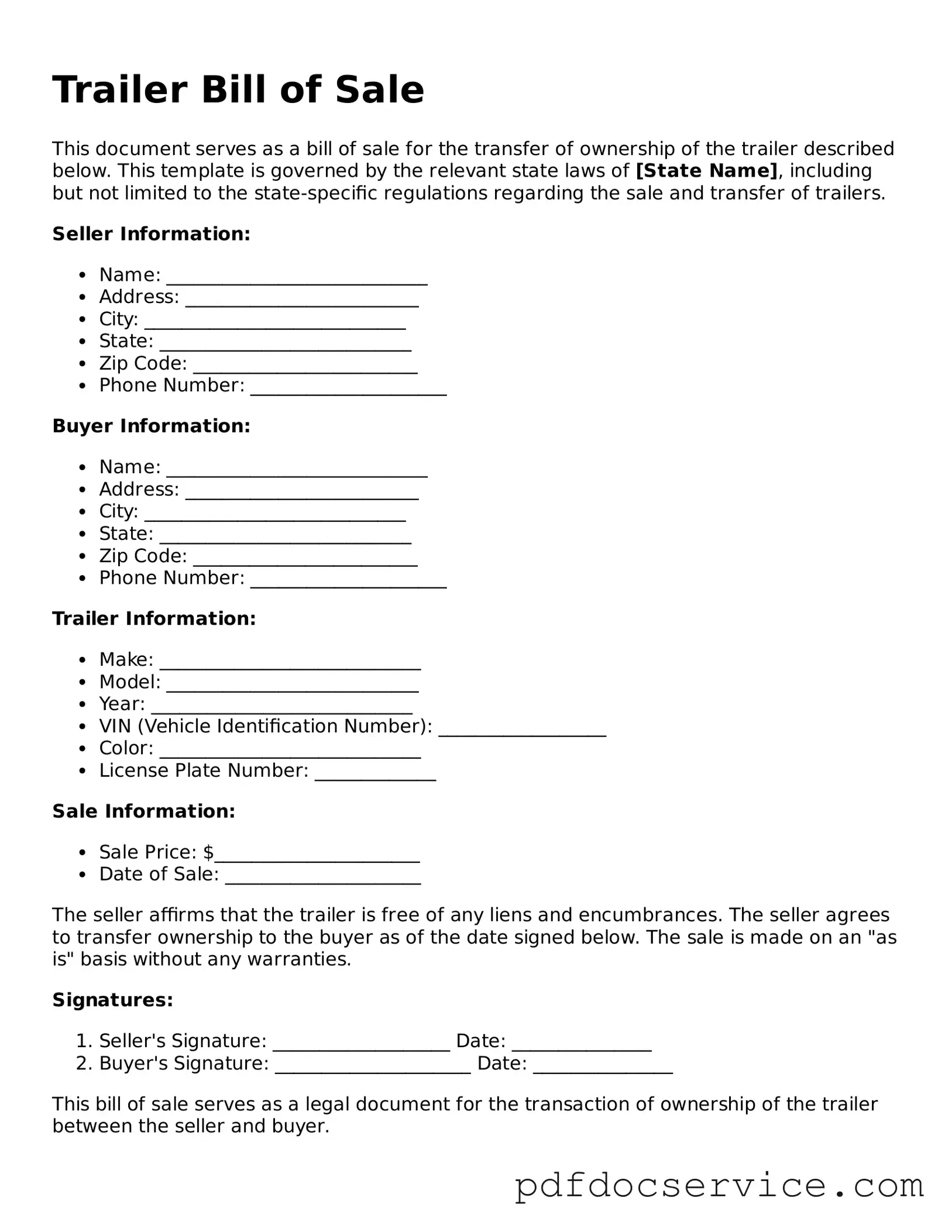What is a Trailer Bill of Sale?
A Trailer Bill of Sale is a legal document that records the sale of a trailer from one party to another. This form serves as proof of ownership transfer and includes essential details about the trailer, the buyer, and the seller. It can be used for various types of trailers, such as utility, travel, or boat trailers.
Why do I need a Trailer Bill of Sale?
The Trailer Bill of Sale is important for several reasons:
-
It provides legal proof of the transaction between the buyer and seller.
-
It helps to establish ownership, which is crucial for registration and insurance purposes.
-
It protects both parties by documenting the sale terms, including the sale price and any conditions agreed upon.
The Trailer Bill of Sale typically requires the following information:
-
Details of the trailer, including make, model, year, and Vehicle Identification Number (VIN).
-
Names and addresses of both the buyer and seller.
-
The sale price and payment method.
-
Date of the sale.
-
Any warranties or conditions, if applicable.
Do I need to notarize the Trailer Bill of Sale?
Notarization is not always required for a Trailer Bill of Sale, but it is recommended. Having the document notarized adds an extra layer of authenticity and can help prevent disputes in the future. Check your state’s requirements to determine if notarization is necessary.
Can I use a Trailer Bill of Sale for any type of trailer?
Yes, a Trailer Bill of Sale can be used for various types of trailers. This includes utility trailers, travel trailers, boat trailers, and others. Ensure that the form accurately describes the specific type of trailer being sold.
What should I do after completing the Trailer Bill of Sale?
After completing the Trailer Bill of Sale, both the buyer and seller should keep a copy for their records. The buyer may need to present the document when registering the trailer with the Department of Motor Vehicles (DMV) or obtaining insurance. It is also advisable to follow up on any additional requirements specific to your state.
Is there a fee for obtaining a Trailer Bill of Sale?
Generally, there is no fee for creating a Trailer Bill of Sale, as it is a simple document that can be prepared by the parties involved. However, some services or templates may charge a fee for providing a professionally prepared form. Always check for any local fees associated with registering the trailer after the sale.
What if the trailer has a lien on it?
If there is a lien on the trailer, it is essential to resolve it before selling. The seller should contact the lienholder to understand the process for paying off the lien and obtaining a lien release. The Trailer Bill of Sale should indicate whether the trailer is sold free of any liens, ensuring that the buyer is aware of the trailer's status.

